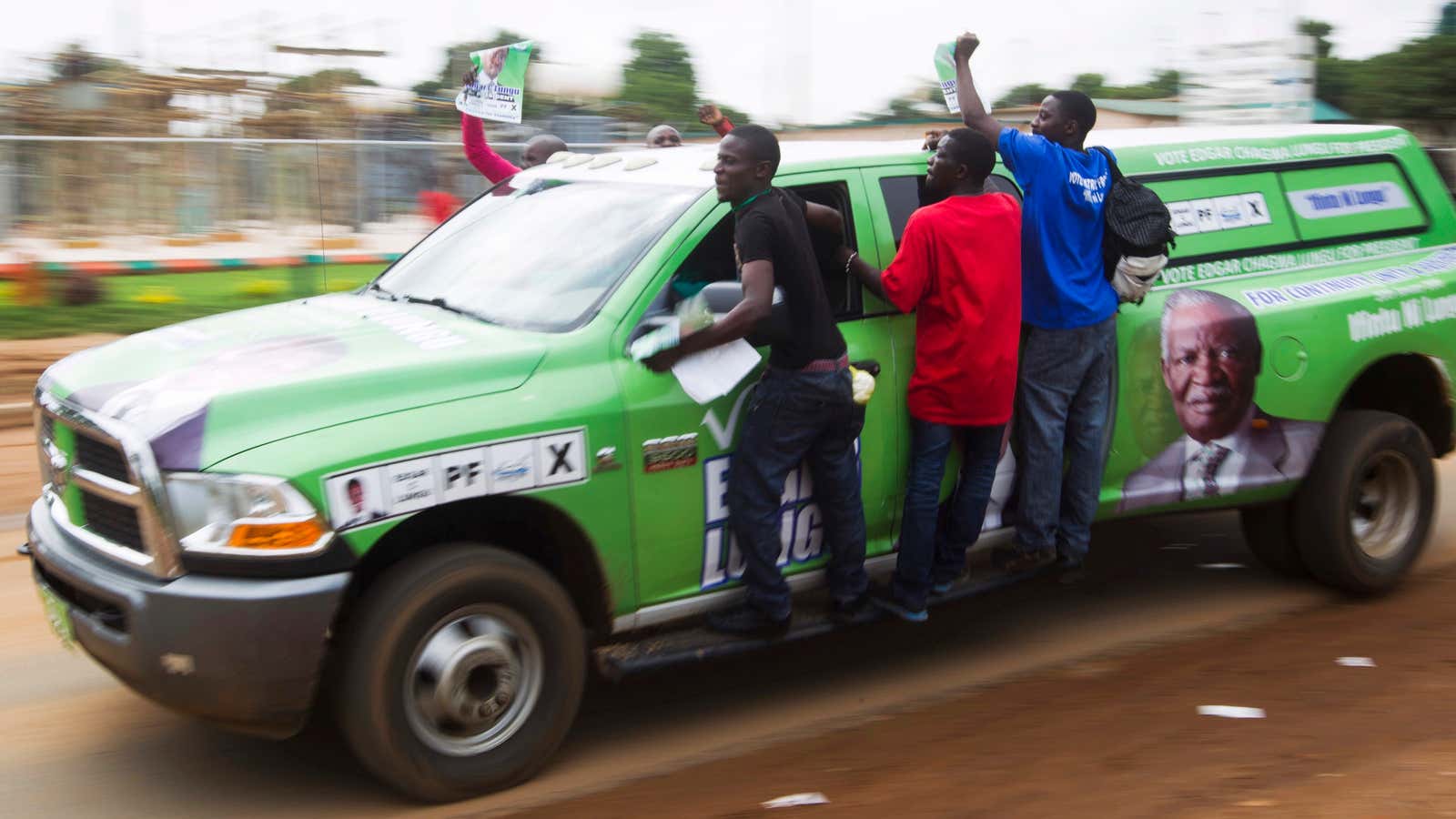Does it make sense for a country to locate its capital city someplace no one can find? Zambia wants to move its capital city from the well-known metropolis of Lusaka to the little know rural district of Ngabwe. A cursory search on Google Maps struggled to locate Ngabwe (Apple’s Maps app had better luck but showed little detail), but if planning minster Lucky Mulusa has his way, it will be the heart of life in Zambia.
Ngabwe, west of the city of Kabwe, was chosen because it’s in the center of the country; Mulusa believes that will make it easier to build the new capital city from scratch. “Human settlement on its own is a problem and that is why my ministry is proposing that we start up a completely new capital city that will be planned on the modern principles of sustainable development,” the minister told the Lusaka Times newspaper.
Lusaka has struggled to keep pace with rapid urbanization, adds Mulusa. The city of roughly 3 million people would simply not be able to maintain Zambia’s “commerce and industry and official activities” in the next decade, he said. Infrastructure improvements won’t solve the city’s fundamental problem: Geography.
“If Lusaka was properly situated, it would have benefited many institutions,” Mulusa told news agency AFP.
Moving the capital city will do little to solve the country’s basic problems and countries in the past have used such attempts to distract from more pressing issues. In 1983 Côte d’Ivoire’s longtime ruler Felix Houphouët-Boigny moved the capital from Abidjan to his hometown of Yamoussoukro, which never really took off as an urban center despite the construction of a massive church. Tanzania made Dodoma its capital city in 1973, but the official relocation from Dar es Salaam still has not happened. Nigeria moved its capital from the crowded coastal city of Lagos to the more central Abuja in 1991.
Zambia has only recently emerged from an economic slump only to confront a slide toward autocracy in what was once one of Africa’s most stable democracies. Opposition leader Hakainde Hichilema was arrested last month after his vehicle failed to make way for president Edgar Lungu’s motorcade, sparking fears of a political witch-hunt over his vocal criticism of the president.
Then on May 25, Zambian authorities barred South Africa’s Democratic Alliance leader Mmusi Maimane from entering the country to attend Hichilema’s case. Maimane returned to South Africa and promptly organized a televised march to the Zambian High Commission.
